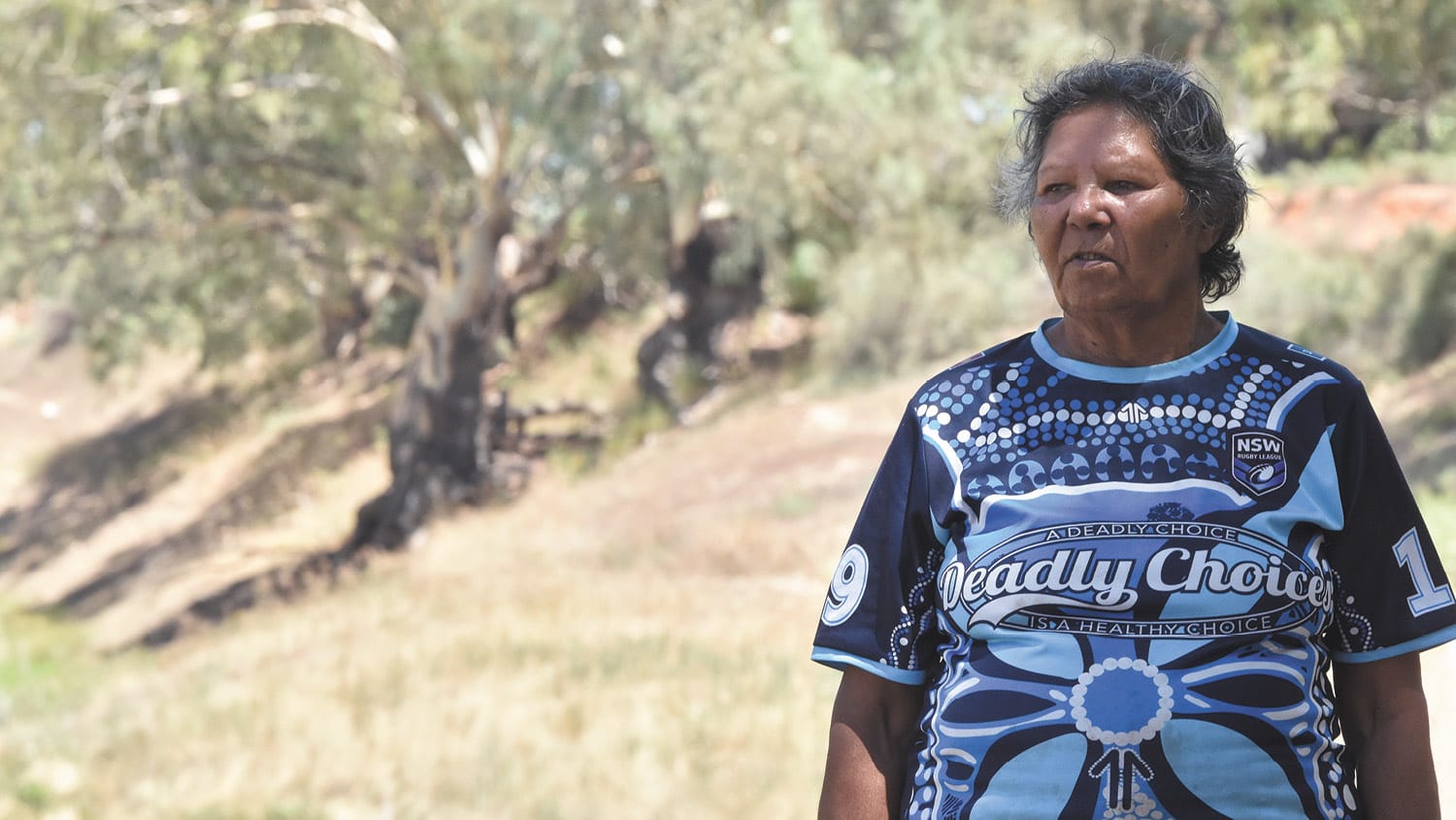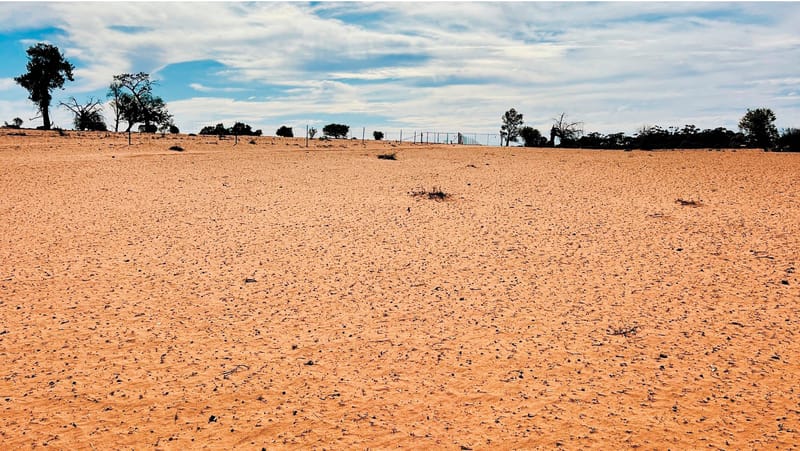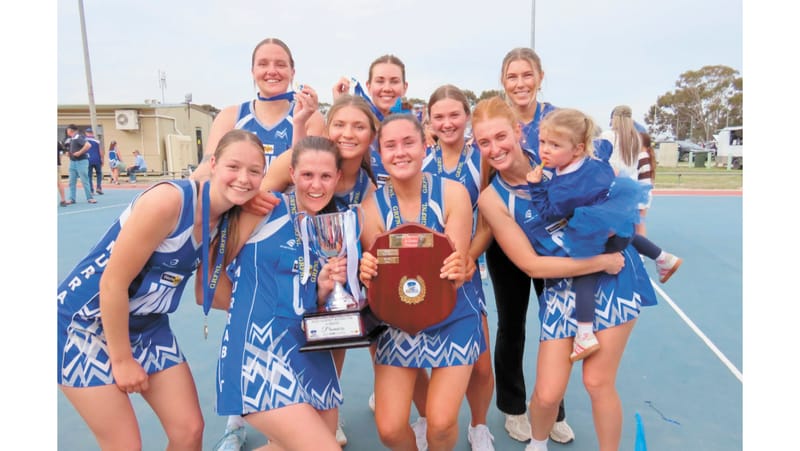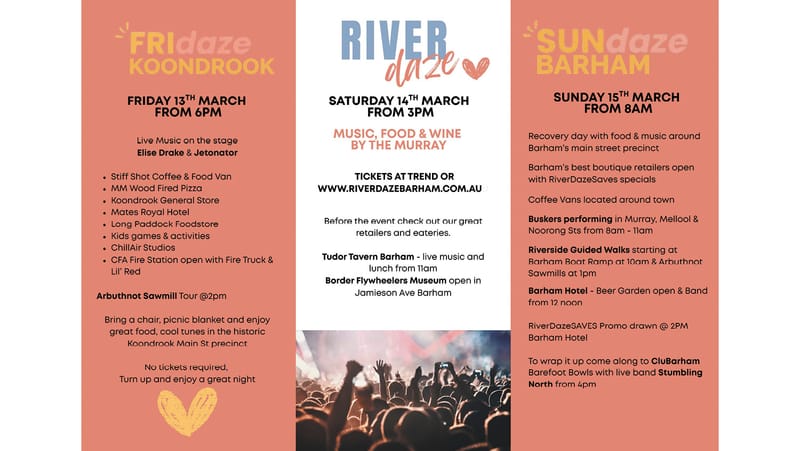EDITORIAL – Southern Connected Basin Communities
EDITORIAL – Southern Connected Basin Communities By Sophie Baldwin, SCBC Muriel Riley has lived through more than her fair share of heartache. As a child of the stolen generation, Muriel was ripped away from her family and her beloved Baaka River...

EDITORIAL – Southern Connected Basin Communities
By Sophie Baldwin, SCBC
Muriel Riley has lived through more than her fair share of heartache.
As a child of the stolen generation, Muriel was ripped away from her family and her beloved Baaka River when she was just five years old.
And now, 63 years later, the river is being ripped away from Muriel.
The Baaka River is in crisis and so too are the Barkandji.
The Barkandji belong to the river – it is in their name, it is their culture, their heritage and their life.
But water has stopped flowing down the river as the insatiable greed from floodplain harvesting in the northern basin has sucked the river dry.
In the last 20 years storages in the north have increased by 152 per cent. This is not climate change – this is greed on such a massive and incomprehensible scale it has stopped a river flowing and forced a community into poverty.
The delicate eco system of the Darling-Baaka River is imploding, taking with it a community so entrenched with the cycle of the river, they are lost without it.
The fish are long gone, as are the kangaroos, the emus, the yabbies and the mussels – the food source and the totems of the Barkandji have all disappeared into the dust.
There are times when the water quality is so poor, contact results in an angry red rash, while other times it is stagnant and putrid – often there is no water at all.
It is hard to believe the people of Wilcannia in 2021 have to live below the poverty line - their life expectancy is just 38 years for men and 42 for women.
It is a well-known fact when there is water in the river, crime rates are down and the community’s mental and physical well-being is much improved.
And yet, the sadness within Muriel is palpable as she gazes out across a once mighty Baaka River that today is a dirty, muddy streak in the riverbed.
As a young child she can remember a river so clear she could see fish swimming around the bottom.
“Before I got stolen we used to see catfish and now we don't see them no more, they are all gone,” Muriel said.
Muriel knows what it is like to live without her river. She was forced to spend 13 long years away from it.
“Badger and my oldest brother were the lucky ones because Granny used to take them and put them in her canoe and take them up river to get away, but me and my three other brothers were all taken.
“They reckon I was uncontrollable because I broke out of all of them places but I just wanted to get home, back to the river.”
Muriel carried with her an old black and white picture of the bridge at Wilcannia and when she was released at eighteen she only had one destination in mind.
“I just asked them people which way to get to that town and that's how I found my way back – the river is my life,” Muriel said.
And now, six decades later, Muriel is losing her river again.
The Baaka River is no longer the mighty and majestic river of Muriel’s childhood full of fish, mussels, yabbies and ducks, while the reeds she used to weave her baskets with disappeared a long time ago.
“We lost the reeds when they buggered up the river years ago. We have a big hole in our hearts when we see the river like this, we just want the river to be natural like it used to be.”
A recent pulse of 26,000 megalitres has put water into the system, however, it pales into insignificance after two million megalitres were taken by unlicensed and unmetered irrigators in the north.
And the Barkandji are meant to be grateful for what is nothing more than a token gesture and a mere scrap of water.
“This is our mother river and she is our life and we feel really happy when water is here, but how long is the water going to stay this time?” Muriel said.






